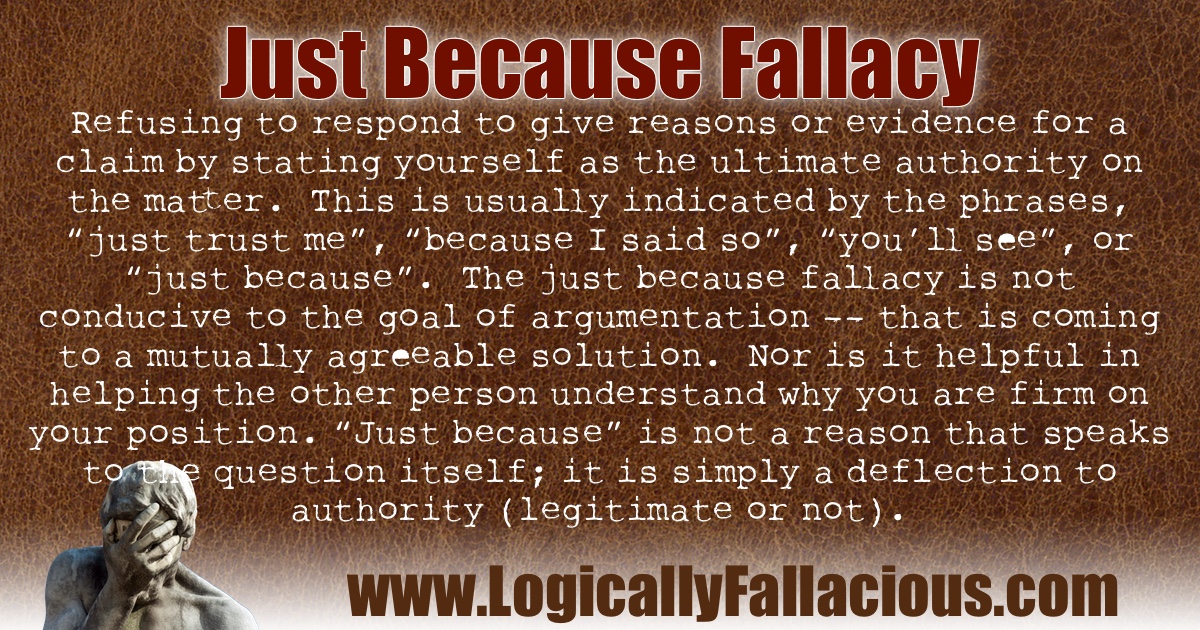(also known as: trust me, mother knows best fallacy, because I said so, you’ll see)
Description: Refusing to respond to give reasons or evidence for a claim by stating yourself as the ultimate authority on the matter. This is usually indicated by the phrases, “just trust me”, “because I said so”, “you’ll see”, or “just because”. The just because fallacy is not conducive to the goal of argumentation -- that is coming to a mutually agreeable solution. Nor is it helpful in helping the other person understand why you are firm on your position. “Just because” is not a reason that speaks to the question itself; it is simply a deflection to authority (legitimate or not).
Logical Form:
X is true because I said so.
Example #1:
Trebor: Mom, can David sleepover tonight?
Mom: No.
Trebor: Why not?
Mom: Because.
Trebor: Because why?
Mom: Because I said so! End of discussion!
Explanation: “Because I said so” is not a valid reason for why a friend can’t sleep over. Maybe the real reason is that sleepovers give mom a headache. Maybe mom wants Trebor to go to bed early because he is cranky the next day if he doesn’t, or perhaps David is just a little brat that drives mom crazy.
Example #2:
Slick Rick: The best I can do for ya is $25,000.
Prospect: Why can’t you do any better?
Slick Rick: Just because that is the lowest I can go.
Prospect: But why.
Slick Rick: Because.
Explanation: In this case, it is clear that there is some underlying reason about which Slick Rick does not want the prospect to know. This reason, almost certainly, has something to do with the fact that Slick Rick can go lower if needed.
Exceptions: There is really no exception to this rule in argumentation or serious discussion. Perhaps this is acceptable in situations where you have the authority to choose not to make an argument out of a command, like in a parent-child relationship—or perhaps your significant other has planned a surprise for you, and the “you’ll see” is meant to deflect your inquiry for your own benefit.
Tip: Don’t let yourself off the hook with “just because” excuses. Keep asking yourself, “what is the real reason?” The answer could uncover an issue that needs your attention.

This is an original logical fallacy named by the author.